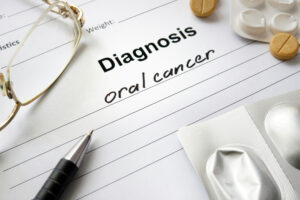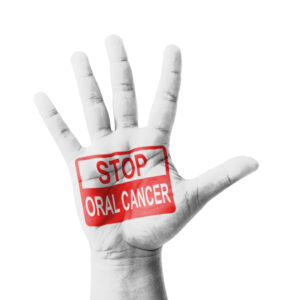Pregnancy is an exciting time, but it also means taking extra care of your health, including your oral health. Many expectant mothers worry about whether dental treatments during pregnancy are safe and how they might affect their baby. The good news? Most dental care is not only safe but also essential during pregnancy. Taking care of your teeth and gums helps ensure a healthy pregnancy and can prevent complications.
Let’s dive with najmi dental that how dental treatment affects pregnancy, which procedures are safe, and how to manage your oral health during these nine months.
Why Oral Health Is Critical During Pregnancy
During pregnancy, your body undergoes many changes, and some of these can affect your oral health. Increased hormone levels can lead to conditions like pregnancy gingivitis, which causes swollen, bleeding gums. Without proper care, this condition can worsen and lead to periodontal disease. Some studies even suggest a link between severe gum disease and preterm birth or low birth weight, so it’s crucial to keep your mouth healthy while pregnant.
Here’s how pregnancy affects your oral health:
- Pregnancy Gingivitis: Hormones can make your gums more sensitive to plaque, causing them to become inflamed, swollen, and prone to bleeding.
- Increased Risk of Cavities: Changes in diet and oral hygiene, along with pregnancy cravings (especially sugary foods), can increase the risk of tooth decay.
- Morning Sickness: The acid from frequent vomiting can erode your tooth enamel, leaving you more vulnerable to cavities and tooth sensitivity.
By staying on top of your oral hygiene and attending regular dental check-ups, you can protect both your teeth and your baby’s health.
Is Dental Treatment Safe During Pregnancy?
Yes, most dental treatments are safe during pregnancy, particularly routine procedures like cleanings, check-ups, and fillings. However, it’s important to inform your dentist that you’re pregnant so they can adjust your treatment plan if needed. Here’s what you need to know about dental treatments during pregnancy:
Safe Dental Treatments During Pregnancy
- Routine Cleanings and Check-ups: Regular dental visits are not only safe but highly recommended. These appointments help prevent problems like gingivitis and ensure your teeth stay healthy throughout pregnancy.
- Fillings and Restorations: If you develop a cavity, getting a filling or other restorative treatments during pregnancy is safe. Dentists usually prefer to perform these treatments in the second trimester, as it’s the most comfortable time for you.
- Gum Disease Treatment: Pregnancy gingivitis can escalate if untreated, leading to more serious gum issues. Your dentist may recommend a deep cleaning to remove plaque and tartar buildup, helping protect your gums and prevent complications.
- Emergency Dental Care: In the case of an emergency, such as an infection, abscess, or severe toothache, don’t hesitate to seek treatment. Leaving infections untreated can pose risks to both you and your baby. Emergency treatments, including extractions or root canals, are generally safe with the right precautions.
Treatments to Postpone
Certain treatments are elective or not urgent and can be safely postponed until after pregnancy. These include:
- Teeth Whitening: Although teeth whitening is a popular cosmetic treatment, it’s best to wait until after pregnancy to have it done, as it’s not essential for your oral health.
- Non-Essential X-rays: Dentists avoid X-rays during pregnancy unless absolutely necessary. If an X-ray is required, your dentist will use protective shields to minimise exposure. In non-emergency cases, X-rays are typically postponed until after delivery.
- Major Dental Surgeries: Procedures like wisdom tooth removal or dental implants are often delayed unless urgent. Your dentist and obstetrician will work together to decide the safest course of action if surgery is unavoidable.
The Best Time for Dental Treatment During Pregnancy
The timing of dental treatments during pregnancy plays a significant role in keeping you comfortable and safe. Here’s a breakdown of when it’s best to receive different types of dental care:
First Trimester (Weeks 1-12)
In the early stages of pregnancy, it’s best to focus on preventive care and minor treatments. This is the time when your baby’s organs are developing, so dentists prefer to avoid any major procedures unless absolutely necessary. However, you should still continue your regular check-ups and cleanings to maintain oral health.
Second Trimester (Weeks 13-28)
The second trimester is considered the safest and most comfortable time for dental treatments. By this point, your baby’s organs are fully developed, and the risks associated with dental work are minimal. If you need fillings, restorations, or gum treatments, this is the ideal time to have them done.
Third Trimester (Weeks 29-40)
During the third trimester, it becomes harder to sit in a dental chair for long periods due to your growing belly. While routine check-ups are still recommended, non-essential treatments are often postponed to avoid discomfort. If you need emergency care, your dentist will take steps to ensure you’re comfortable during the procedure.
How to Manage Your Oral Health During Pregnancy
While you’re waiting for your baby to arrive, keeping up with your oral hygiene routine is more important than ever. Here are some simple ways to protect your teeth and gums throughout your pregnancy:
1. Brush and Floss Regularly
Continue to brush twice a day with fluoride toothpaste and floss daily. If your gums are sensitive or bleeding due to pregnancy gingivitis, try using a soft-bristled toothbrush and brush gently. Proper oral hygiene will help prevent cavities and gum disease.
2. Rinse After Morning Sickness
If morning sickness causes frequent vomiting, the acid in your stomach can erode your tooth enamel. After vomiting, rinse your mouth with water or a baking soda solution (one teaspoon of baking soda in a cup of water) to neutralise the acid. Avoid brushing immediately after vomiting, as this can further damage enamel.
3. Eat a Healthy Diet
A balanced diet rich in calcium, vitamin D, and phosphorus is important for both your and your baby’s dental health. These nutrients help build strong bones and teeth. Limit sugary snacks and drinks to reduce the risk of cavities, and opt for healthy alternatives like fruits, vegetables, and dairy products.
4. Stay Hydrated
Drinking water throughout the day helps prevent dry mouth, a common issue during pregnancy. Saliva is your mouth’s natural defence against bacteria, and staying hydrated helps maintain saliva production. You can also chew sugar-free gum to stimulate saliva flow.
Coordinate Care with Your Dentist and Obstetrician
It’s essential to keep your dentist and obstetrician informed about your pregnancy. Both professionals will work together to ensure that any treatments are safe for you and your baby. Make sure to share the following with your dentist:
- Your due date
- Any medications or supplements you’re taking
- Any health conditions you’re managing during pregnancy, like gestational diabetes or high blood pressure
By sharing this information, your dentist can customise your treatment plan to meet your needs while keeping you and your baby safe.
Conclusion
Dental treatment during pregnancy is safe and necessary for your health and the health of your baby. Routine care, such as check-ups, cleanings, and even some restorative treatments, can be performed safely, especially during the second trimester. However, it’s essential to communicate openly with your healthcare team and take precautions for non-urgent procedures.
Don’t skip your dental appointments while pregnant. If you have concerns about your oral health or need advice on which treatments are best during your pregnancy, Contact najmi dental. Keeping your teeth and gums healthy now will support a healthy pregnancy and a happy, healthy baby.


